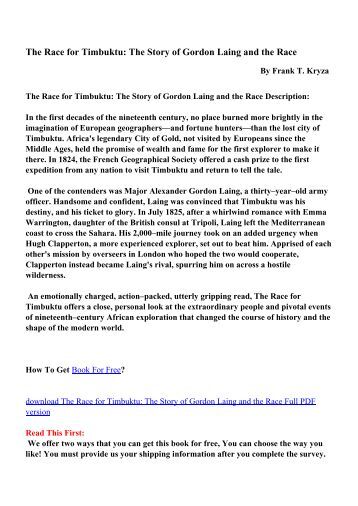Download Software Origins Of The Modern World Robert Marks Pdf
Smart Modular Technologies 16mb Flash Card Driver. Study The Origins of the Modern World. Study The Origins of the Modern World: A Global and Ecological Narrative from the Fifteenth to the Twenty. Download origins of the modern world marks in PDF Format Download origins of the modern. - origins of the modern world robert marks sparknotes Rebecca Karl Mao. Get this from a library! The Origins of the Modern World: a Global and Ecological Narrative from the Fifteenth to the Twenty-first Century. [Robert B Marks] -- This. The Origins of the Modern World. Author: Robert B. Other Format: PDF EPUB. Have not added any PDF format description on The Origins of the.


Mestrenova Serial Number. This clearly written and engrossing book presents a global narrative of the origins of the modern world from 1400 to the present. Unlike most studies, which assume that the 'rise of the West' is the story of the coming of the modern world, this history, drawing upon new scholarship on Asia, Africa, and the New World, constructs a story in which those parts of the world play major roles.
Marks defines the modern world as one marked by industry, the nation state, interstate warfare, a large andgrowing gap between the wealthiest and poorest parts of the world, and an escape from 'the. Rating: (not yet rated) Subjects • • • • More like this •. Find more information about: ISBN: 7733 OCLC Number: 733040264 Description: 1 online resource (241 pages) Contents: The Origins of the Modern World; Contents; List of Figures and Maps; Preface; Preface to the Second Edition; Introduction The Rise of the West?; Chapter 1 The Material and Trading Worlds, circa 1400; Chapter 2 Starting with China; Chapter 3 Empires, States, and the New World, 1500-1775; Chapter 4 The Industrial Revolution and Its Consequences, 1750-1850; Chapter 5 The Gap; Chapter 6 The Great Departure; Conclusion Changes and Continuities; Index; About the Author. This clearly written and engrossing book presents a global narrative of the origins of the modern world from 1400 to the present. Unlike most studies, which assume that the 'rise of the West' is the story of the coming of the modern world, this history, drawing upon new scholarship on Asia, Africa, and the New World, constructs a story in which those parts of the world play major roles. Marks defines the modern world as one marked by industry, the nation state, interstate warfare, a large andgrowing gap between the wealthiest and poorest parts of the world, and an escape from 'the.
This clearly written and engrossing book presents a global narrative of the origins of the modern world from 1400 to the present. Unlike most studies, which assume that the 'rise of the West' is the story of the coming of the modern world, this history, drawing upon new scholarship on Asia, Africa, and the New World, constructs a story in which those parts of the world play major roles. Marks defines the modern world as one marked by industry, the nation state, interstate warfare, a large andgrowing gap between the wealthiest and poorest parts of the world, and an escape from 'the biological old regime.' He explains its origins by emphasizing contingencies (such as the conquest of the New World); the broad comparability of the most advanced regions in China, India, and Europe; the reasons why England was able to escape from common ecological constraints facing all of those regions by the 18th century; and a conjuncture of human and natural forces that solidified a gap between the industrialized and non-industrialized parts of the world. Now in a new edition that brings the saga of the modern world to the present, the book considers how and why the United States emerged as a world power in the twentieth century and became the sole superpowerby the twenty-first century. Once again arguing that the rise of the United States to global hegemon was contingent, not inevitable, Marks also points to the resurgence of Asia and the vastly changed relationship of humans to the environment that may, inthe long run, overshadow any political and economic milestones of the past hundred years.